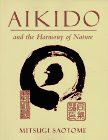Sometimes I'm a bit impatient with beginners who don't understand that uke has to come and attack and it's not really the way of harmony if one partner's intention is to resist or interrupt an already started motion. For example, some beginners 'attack' as if they didn't really want to. They hold your wrist but as soon as you move they release it or stop and unless you tell them what to do a couple of times every training there isn't much improvement. As a partner (being tori) I usually explain that 1. uke is an attacker so has to attack and come forward until he can't 2. if you stop and release my hand you might easily get a punch in your face (which I don't demonstrate). Be warned: I might sound confused in this post and that's because I'm still far from understanding how things really work in aikido and how some existing knowledge and experience can be effectively passed on to beginners to improve them so we can practice in harmony and can further improve more quickly. I think about these things a lot and, from time to time, I come up with new interpretations, ideas which are often based on something I hear or read.
Be warned: I might sound confused in this post and that's because I'm still far from understanding how things really work in aikido and how some existing knowledge and experience can be effectively passed on to beginners to improve them so we can practice in harmony and can further improve more quickly. I think about these things a lot and, from time to time, I come up with new interpretations, ideas which are often based on something I hear or read.
A couple of weeks ago I read a blog post about trust. It made me think. It also made me realise that my thinking is still of a beginner's and there's still an incredible amount of knowledge to gather along the Way (there are some points in life when we realize how big the world is and how small we are in it).
I'm very similar to the author in the sense that I, too have substantial experience in trusting too much. One point he made was that if you trust your tori (aka. nage) too much you can easily run into one or two punches (which is the opposite of the example above but I'll get to that point later). As I described, this was my problem too and I learned to slow down a bit but I still often forget to keep away from that atemi (and usually this is when I start wondering how someone with a relatively short arm can easily reach my nose :)). Now, what if you are tori and uke does exactly the opposite of my approach, i.e. grabs you but doesn't come forward to attack despite the master's explanation about attacking? I think it can a question of trust. Not attacking can easily be a self-trust problem for a beginner: he doesn't know what exactly is going to happen and he's not confident whether he can roll/fall properly. But if the person is not a complete beginner I think this behaviour also shows that he doesn't trust his partner which should not be the case. Luckily, as someone practices more this becomes less an issue and you can actually begin to practice in harmony. But before that it's very hard sometimes.
I don't blame anyone who's not attacking. There might be other reasons for not attacking apart from trust problems and if it's a lack of trust then that can have a lot of reasons, too. We live in a world where nobody trusts others. And obviously, if you generally don't trust people you can't be expected to trust others right after taking up aikido.
Another point is that if you trust too easily you shouldn't expect the same from everyone else and shouldn't be frustrated if your uke won't attack properly (this has also been made clear in the post I mentioned above). Eventually, you will earn their trust and you can enjoy practicing together much more (at least this is what I always tell to myself when my blood pressure is starting to increase :)).
I think training in aikido could actually increase your level of trust (and hopefully not the blood pressure :)) and during training you can teach yourself to trust some people in a relatively safe environment in order to make your life better. Own example: training can help you a lot to overcome fear and lack of trust so that you can build healthy relationships with other people (you can ask my wife about this ;)).
Articles, photos, videos and discussions about Aikido. From people who practice this martial art in Wimbledon, London, UK.
Latest posts from Connor & Zolley's Aikido Site
Blog Archive
Our own Aikido classes
Subscribe to...
Our organisation

Aikido Alapítvány (Aikido Foundation, Hungary):
- International technical advisor: FUJITA Masatake Shihan (8th Dan Aikikai)
- Technical director: ELSNER László (5th Dan Aikikai)
- Chair: VASS Zoltán (3rd Dan Aikikai)
Label Cloud
- addiction (2)
- aikido (37)
- aikido club (4)
- aikikai (4)
- announcement (1)
- applications (1)
- art (1)
- attack (1)
- awards (1)
- axe (1)
- beginners (3)
- beginners guide (5)
- belt (4)
- blog (3)
- bow (3)
- business (1)
- change (2)
- cherry (1)
- China (1)
- chopping wood (1)
- colour (3)
- competition (2)
- connect (1)
- criticism (1)
- culture (4)
- cut (1)
- dan (1)
- demonstration (2)
- dojos (1)
- doshu (2)
- Dragons' den (1)
- England (1)
- etiquette (1)
- exercise (1)
- experience (3)
- fabric (1)
- fire (1)
- first (5)
- fold (3)
- food (1)
- funny (4)
- gi (2)
- hakama (7)
- harmony (1)
- Heroes (1)
- Hungary (1)
- injury (1)
- instructions (1)
- itp (1)
- Japan (7)
- kanji (2)
- kata (1)
- katana (1)
- keikogi (2)
- ki (2)
- kids (2)
- kyu (1)
- language (1)
- learning (1)
- logo (1)
- london (5)
- martial arts (5)
- maturity (1)
- meditation (1)
- moriteru (1)
- O'Sensei (1)
- obi (2)
- Olympic Games (1)
- onlineaikido (3)
- organizations (1)
- patience (3)
- pictures (7)
- plum (1)
- Poirot (1)
- posture (2)
- put on (1)
- question (3)
- quote (2)
- relativity (1)
- respect (2)
- review (1)
- rolling (1)
- safety (1)
- Seven samurai (1)
- shomenuchi (1)
- shuhari (1)
- size (1)
- software (1)
- Southfields (1)
- speed (3)
- squirrels (1)
- Steven Seagal (1)
- stories (1)
- subscription (1)
- techniques (3)
- thinking (1)
- tie on (1)
- time (3)
- tips (2)
- tori (3)
- tradition (2)
- training (16)
- translation (2)
- trust (1)
- trying (1)
- TV (1)
- ueshiba (2)
- uke (3)
- video (2)
- water (1)
- wimbledon (5)
Latest comments
Our Authors
Links
Blogs
Search for books









No comments:
Post a Comment